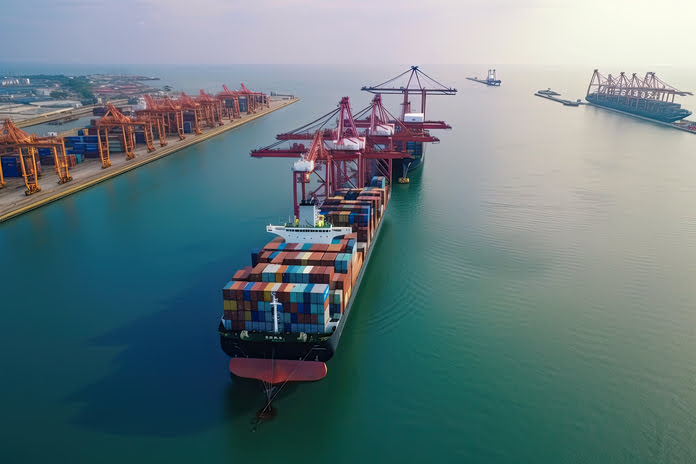Logistics firm Kuehne and Nagel reports that 103 container vessels are diverting from the Red Sea, circumventing the southern cape of Africa to evade attacks on commercial shipping. Some companies are exploring alternative routes, including rail and air, to bypass the Red Sea, a critical passage responsible for about 14% of global maritime trade. The assaults on commercial vessels by Yemeni-based Houthi militants mark an escalation in the Israel-Hamas conflict. Since the outbreak of hostilities in October, at least twenty merchant ships near Yemen have been targeted by Iranian-backed Houthi militants. Initially focused on Israeli-linked ships, recent attacks indicate a broader escalation, impacting commercial vessels with no direct ties to Israel.
Global shipping companies now confront significant disruptions as they reroute ships away from the Red Sea. For those willing to navigate the region, insurance premiums surge, freight rates climb, and crude oil prices (CLG24) hit a 2-1/2 week high, collectively contributing to higher consumer prices and inflation. The London Forum of Insurance Lawyers states that both increased premiums and rerouting around Africa will have a ripple effect on the price of goods.
The situation in the Red Sea poses a potentially more severe shipping emergency than the 2021 Suez Canal shutdown when the Ever Given container ship blocked the canal for a week. That incident disrupted global trade for months and incurred an estimated $9.6 billion in losses. The recent decision by the world’s five largest container liners, commanding 65% of global capacity, to suspend transits through the Red Sea and redirect ships around Africa indicates higher shipping costs and extended delivery timelines, potentially leading to global supply chain disruptions.
Bloomberg Intelligence estimates that rerouting ships will increase voyage distance by about 40%, elevating delivery times and fuel costs. Longer routes are anticipated to diminish shipping capacity and exert additional upward pressure on contracts. While analysts acknowledge the potential impact, they also believe it can be contained. The decision by the U.S. and its allies to bolster security presence in the Red Sea is expected to reduce the risk of attacks on commercial vessels. Despite a 25% increase in shipping costs for containers from Shanghai to Rotterdam since late November, they remain below the record highs of 2021/22.
Featured Image: Freepik















